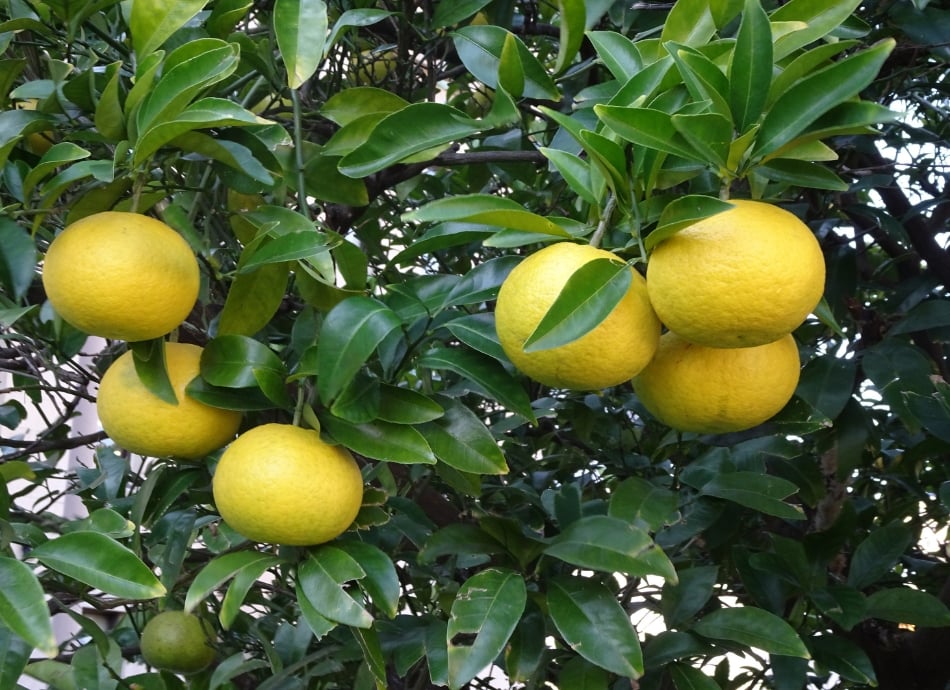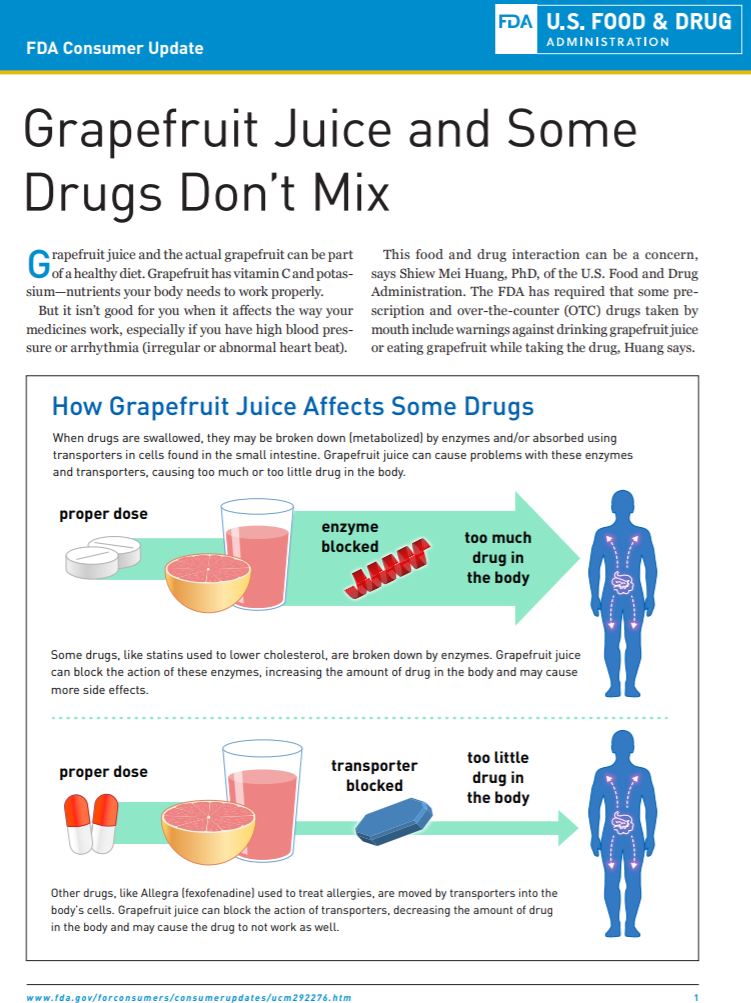Grapefruit and medicines
Key points about grapefruit juice and medicines
- Eating grapefruit or drinking grapefruit juice can affect some medicines. In most cases, it increases the level of the medicine in your blood.
- This can increase the risk of side effects or change the effect the medicine has.
- Read about this risk and what to do if you take a medicine that is affected by grapefruit.

Grapefruit juice contains chemicals that can cause problems with enzymes that break down certain types of medicines in your body. When a medicine doesn't get broken down properly, you can have too much medicine in your blood. Having too much medicine in your blood increases your chances of having side effects.
If your usual diet includes grapefruit or grapefruit juice and you've been prescribed a medicine that's affected by grapefruit, speak to your GP or pharmacist. Do not stop taking your medicines without advice.
Here are some medicines that grapefruit and grapefruit juice can interact with (cause problems with), although there may be others that are not on this list:
- simvastatin
- atorvastatin
- nifedipine
- carbamazepine
- felodipine
- clopidogrel
- Sandimmune and Neoral (both cyclosporine)
- buspirone
- amiodarone.
To find out if you can drink grapefruit juice while taking your medicine, talk to your doctor or pharmacist.
The risk of experiencing the effect of an interaction from grapefruit can vary a lot from person to person. The interaction can be different depending on the person, the medicine and the amount of grapefruit you eat or grapefruit juice you drink.
Some problems are mild, while others are more serious. For some medicines you may need to limit the quantity of grapefruit you have, while with others you may need to avoid it completely.
If you have grapefruit or grapefruit juice in your diet, talk to your pharmacist about any prescription medicine or over-the-counter medicine to find out:
- if the medicine you are taking may be affected
- how much, if any, grapefruit juice you can have
- what other fruits or juices may also affect your medicine in a similar way to grapefruit juice.
Seville oranges (which are sometimes used in marmalade but not in orange juice), pomelos and tangelos may also cause problems.
You can take steps to avoid problems with grapefruit juice and your medicine.
- Before you take any medicine, ask your doctor or pharmacist if you can safely drink grapefruit juice. For some medicines you may need to limit the quantity of grapefruit you have, while with others you may need to avoid it completely.
- Read the labels on foods and natural health products to make sure they do not contain grapefruit, grapefruit juice or grapefruit extract.
- Always read the labels for any medicine you are taking. If you have questions, ask your doctor or pharmacist.
- Tell your doctor if you are having unusual or uncomfortable side effects from your medicine.
- Tell your doctor and other health professionals about all the medicines you are taking. This includes herbs, vitamins, homeopathic products, supplements and over-the-counter medicines.
Resources
Grapefruit juice and some drugs don't mix(external link)
Food and Drug Administration, US, 2017
References
- Grapefruit–medication interactions: forbidden fruit or avoidable consequences?(external link) Canadian Medical Association Journal. 2013 March 5; 185(4).
- Fruit interactions with common medicines(external link) Medsafe, NZ, 2015
Brochures

Food and Drug Administration, USA, 2017

Medicines and side effects
Healthify He Puna Waiora, NZ, 2024

Health Quality and Safety Commission, NZ, 2019 English, te reo Māori
Credits: Sandra Ponen, Pharmacist, Healthify He Puna Waiora. Healthify is brought to you by Health Navigator Charitable Trust.
Reviewed by: Angela Lambie, Pharmacist, Auckland
Last reviewed:
Page last updated:





